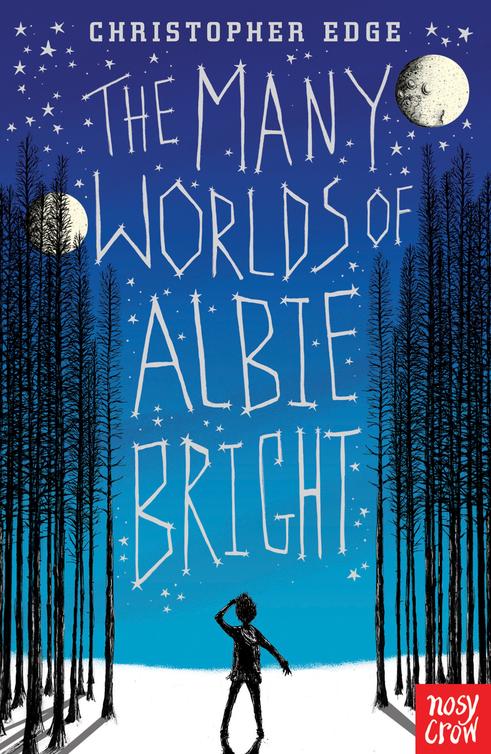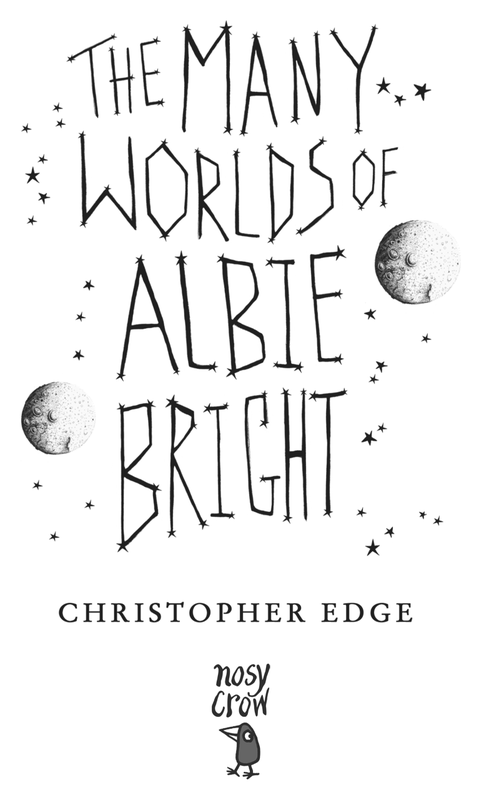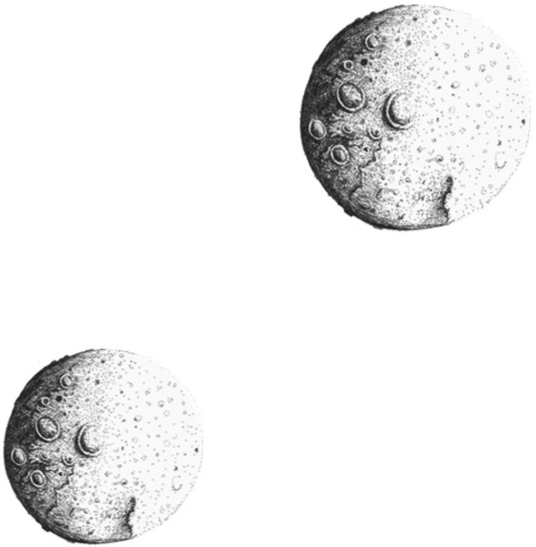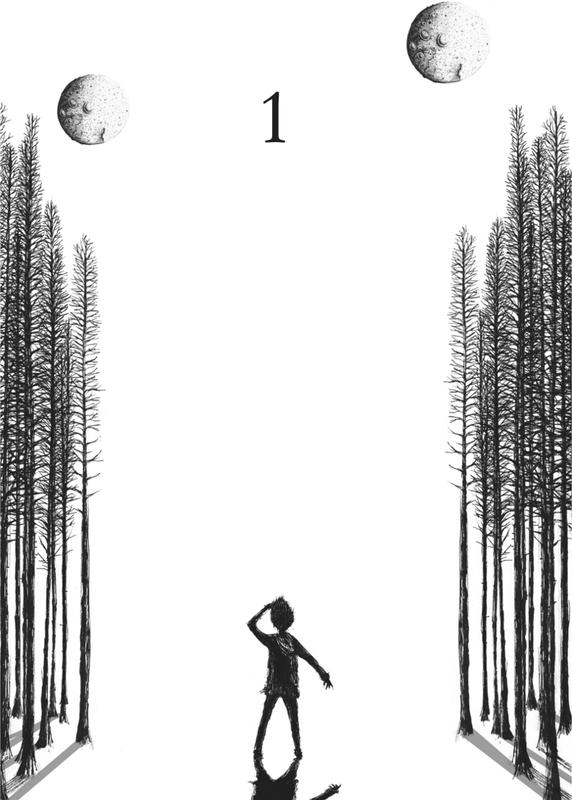Many Worlds of Albie Bright
Read Many Worlds of Albie Bright Online
Authors: Christopher Edge



For Chrissie, Alex and Josie in every universe


“But do you really mean, Sir,” said Peter, “that there could be other worlds – all over the place, just round the corner – like that?”
“Nothing is more probable,” said the Professor, taking off his spectacles and beginning to polish them, while he muttered to himself, “I wonder what they
do
teach them at these schools.”
C.S. Lewis,
The Lion, the Witch and the Wardrobe



It was my dad who gave me the idea of using quantum physics to find my mum.
She died two weeks ago. Her funeral was on Tuesday. It was at St Thomas’ Church in the village. At first Dad said he wanted something called a humanist funeral without any “religious mumbo-jumbo”, but Grandad Joe wasn’t having this. “She’s not a
humanist
,” he’d said, almost spitting out his tea when Dad tried to explain. “She’s my daughter.”
He said that Mum had been christened at St Thomas’ Church when she was a baby and he wanted her ashes buried there too, right next to Grandma Joyce,
looking out towards the wind turbines and the mine at the edge of the moors.
That’s where Mum used to work – down the pit. She wasn’t a coal miner, she was a
scientist
. You see, Clackthorpe Pit is one of the deepest mines in Great Britain and when the coal ran out it was scientists searching for the secrets of the universe who moved in there instead. Down at the bottom of the mine they could use all their high-tech equipment without any cosmic rays interfering with their experiments.
Cosmic rays are radiation from outer space. Every second of the day dozens of these cosmic rays zip through your body and you don’t even notice a thing. Don’t worry, they won’t turn you into a bug-eyed mutant, but they can seriously mess up the kind of experiments that Mum and Dad do, so that’s why they’ve got to hide them away underground.
Mum and Dad used to joke that their first date was one thousand metres beneath the moors. They went down the mine looking for dark matter – the invisible glue that sticks the universe together – and found each other instead. They got married and, skipping the embarrassing biology bit, eight months later I showed up. Albert Stephen Bright. I
was named after Mum and Dad’s favourite scientists: Albert Einstein and Stephen Hawking, but everyone calls me Albie for short.
According to my mum, my early arrival was a bit like the Big Bang – a complete surprise and pretty scary too – and I ended up staying in hospital until I was nearly four months old. Then, when I finally got better, Mum and Dad took me with them when they went to work at CERN in Switzerland.
CERN is like Disneyland for scientists. It’s where the World Wide Web was invented and now it’s the home of the Large Hadron Collider. In case you’ve not seen it on the TV, the Large Hadron Collider is the biggest machine in the world. It’s sixteen and a half miles long and weighs a whopping 38,000 tons. That’s why it’s called the LARGE Hadron Collider. Scientists built the LHC to look inside the smallest things in the universe. Atoms.
Everything in the universe is made out of atoms – you, me, this piece of paper, even the sun. And the thing about atoms is they’re small – very small. To give you an idea of how incredibly tiny I’m talking here, take a look at the full stop at the end of this sentence. Had a good look? Now, that full stop has got 8 trillion atoms inside it. That’s 8,000,000,000,000
atoms. Count those zeroes. There are more atoms in that full stop than there are people alive in the world today. That’s pretty amazing, don’t you think? And every atom is made up of even smaller particles called protons, neutrons and electrons.
When I asked Mum why she needed such a big machine to look inside something so small, she told me that the Large Hadron Collider is like an underground race track for atoms, but where the winner is the one who has the biggest crash. In the collider, these tiny particles race round and round in circles getting faster and faster until they smash together at almost the speed of light. Mum said this creates a mini Big Bang – a bit like the one that made the universe – and by studying this Mum and Dad hoped to find out exactly how everything began.
There was just one problem. As well as making mini Big Bangs, it turned out that smashing atoms together at nearly the speed of light might make mini black holes too. A black hole is like an invisible vacuum cleaner in space, sucking up anything that gets too close. This book that my dad wrote says that the gravity inside a black hole is so strong that not even light can escape. If you tried to fly a spaceship
past for a closer look, you’d get sucked inside the black hole and turned into spaghetti.
Of course, the idea that the Large Hadron Collider was going to create a black hole here on Earth wasn’t that popular. Before you knew it, TV news crews from around the world were turning up at CERN to accuse Mum, Dad and the rest of the scientists there of plotting to DESTROY THE WORLD! It ended up being my dad who was pushed in front of the TV cameras to explain how this was totally ridiculous and that any black holes that
were
created inside the collider would evaporate instantly without the Earth being sucked inside out.
That’s when he got talent-spotted. A TV company offered Dad the chance to make his own series,
Ben Bright’s Guide to the Universe: Everything You Ever Wanted to Know About Space for People Who Hated Science at School
. It turned out that quite a lot of people hated science at school, and eight million people ended up watching. One TV reviewer even nicknamed my dad “The Man Who Can Explain Everything”, but to be honest he wasn’t much help with my homework. Most of the time he wasn’t even at home, as he flew around the world filming cool science stuff for his next TV series.
Whenever Dad did turn up to collect me from school, I usually ended up hanging around waiting while my teachers took a selfie with him. It was seriously embarrassing, but Mum didn’t seem to mind. She used to joke that all the time Dad spent being a TV star just gave her more time to get on with the real science and that she’d win a Nobel Prize before him.
That was before Mum got the news that changed everything.
She’d gone for one of the health checks given to all the scientists at the LHC and a shadow had shown up on one of the scans. Cancer. And with that one word Mum and Dad packed up everything and we came back to Great Britain and the NHS.
Moving back into our old house in Clackthorpe, I watched Dad ferry Mum to the hospital and back again, trying treatment after treatment until the doctors finally said there was no point trying anything else. I watched Mum lose her hair, her smile and finally all hope. There was just enough time for me to get angry and then she was gone, leaving a supermassive black hole behind.
That’s how I ended up standing at the front of St Thomas’ Church, staring at her coffin. The church
was filled with Mum and Dad’s family and friends: Grandad Joe, Aunt Sophie and the twins, scientists from the Large Hadron Collider and from down the mine at the edge of the village. There were people from TV and Mum’s old school friends. Everyone had come to say goodbye.
When the vicar started to speak, Dad grabbed hold of my hand and held on to it tightly. It was almost like he wanted to make sure I didn’t disappear on him too, but it just made me feel like a little kid. Grandad Joe was holding on to my other hand and I had to sit there between them, just wishing I could stick my fingers in my ears. I didn’t want to hear any of it, but I can remember every word.
“Today we come together to remember Charlotte Elizabeth Bright, taken from this world at the age of thirty-nine, leaving behind her husband Ben and her son Albie. Charlotte was not only a devoted wife, loving mother and beloved daughter, but also a scientist of world renown. With her work at the Large Hadron Collider, Charlotte shone a light into the unexplored corners of the cosmos, helping us all to understand a little more about the wonder of creation. Atoms and stars, the speed of light and the beat of the human heart – all of these come from
a power far greater than any machine ever built by the hand of Man.
“And now Charlotte is in a place where such wonders will seem commonplace. A place of infinite beauty and splendour, where there is no sickness or pain, no sorrow or despair, only joy everlasting. I speak, of course, of heaven, where Charlotte will find the answers to every question she has ever asked of God’s creation.”
I wanted to put my hand up to ask the vicar my own question, but Dad and Grandad Joe wouldn’t let go, so I just had to sit there and listen to him drone on. It was only after the funeral, when everyone else had gone home and Grandad was snoring in his armchair, that I finally got the chance to ask Dad the question that was bugging me.
“How does the vicar
know
that Mum’s in heaven?”
Sitting on the sofa, Dad blinked in surprise. As I waited for an answer, he opened and closed his mouth a few times but no words actually came out.
“I mean, do
you
believe in heaven?” I asked him.
And that’s when Dad started to tell me about quantum physics.
“Atoms and particles can behave in rather strange ways,” he began. “There’s a famous experiment
called the double-slit experiment where scientists fire a single atom at two tiny holes in a wall.” Grabbing hold of a piece of paper and a pen, Dad began to sketch out a diagram to explain.

“Now, sometimes in this experiment the atom goes through the left-hand hole, sometimes it goes through the right-hand hole, but when nobody is looking, the atom appears to go through both holes at the same time.”
Typical. I ask my dad a simple question and he tries to turn it into an episode of his TV show.
“Different scientists have come up with different theories about how the same atom can be in two places at once,” Dad continued. “But some quantum physicists think that this is evidence of a parallel universe. They say that this universe – the world that we live in – is just one of an infinite number of other universes. Every time our world is confronted by a choice – for example, whether the
atom goes through the left-hand hole or the right-hand hole – it splits into new parallel worlds where each possibility actually happens.”
“What do you mean ‘new parallel worlds’?” I asked, still struggling to understand exactly why Dad was telling me this.
“Imagine a line of planet Earths all stretching into space,” he said, “one after another like the queue for the school bus. Every one of these parallel worlds is just like our planet, but with one tiny difference. In one of these parallel worlds you’ve just won the lottery, but in another world you’ve been eaten by a shark instead. Everything that can happen
does
happen somewhere.”
Dad pulled that serious-looking face he does on TV whenever he’s explaining a really tricky bit of science.
“Just think about it, Albie. If this is true for a single atom when it goes through both holes in the wall, then it’s true for you and me too. We’re all made out of atoms. Your mum’s cancer was caused by a single cell in her body going rogue, but according to quantum physics there’s a parallel universe where this never happened, your mum never got cancer and she’s still alive and with us
today.” He tried to force his face into a smile. “That’s a good thing to think, isn’t it?”
My head spun as the full meaning of what Dad was telling me slowly sank in.
I’d asked Mum once why she had wanted to become a scientist. She’d told me that what she liked best about science was that it didn’t just accept the way things are. Scientists ask questions, make discoveries and sometimes end up changing the world. You only find out what is possible, she said, by trying to do the impossible.
If quantum physics said that my mum was still alive in some parallel universe, then maybe quantum physics could help me find her.